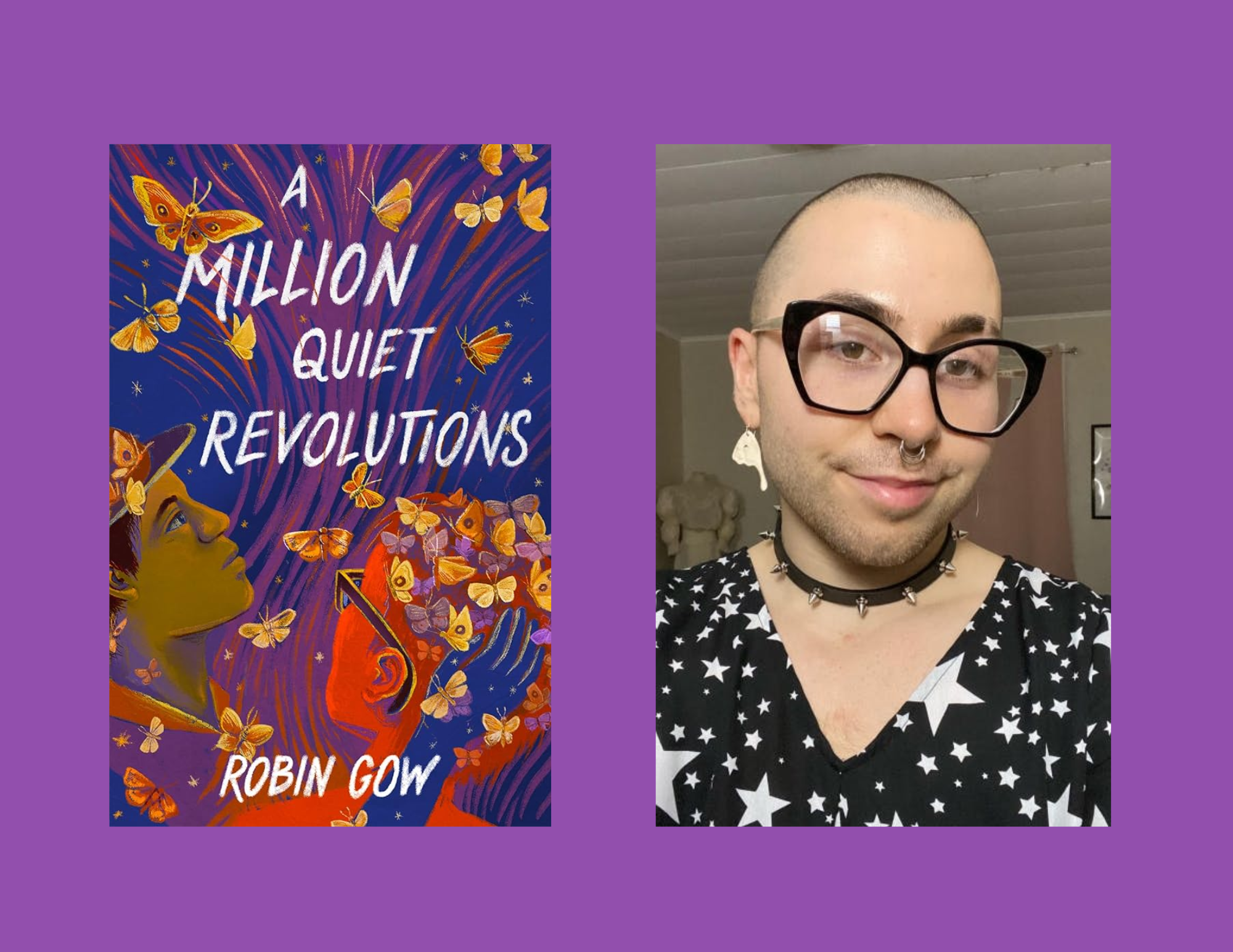Robin Gow is an author and poet who explores themes of mental health, queerness, and relationships in their writing. An educator in Allentown, Pennsylvania, Gow writes poetry, essays, YA novels, and Middle-Grade books.
Ashley Rapay: How long have you been writing for?
Robin Gow: I’ve been writing ever since I was a little kid. I started reading when I was in third grade, but even before then, I was making graphic novels. In college, I started taking writing classes and formally learned more. I have been writing for a very long time and it’s my favorite thing to do. I came from a family that tells many stories and I think that impacted me to write multiple books.
AR: Is there any reason you started writing?
RG: If there was a moment that made me want to pursue it more professionally, it was after reading this book called, The Particular Sadness of Lemon Cake, that I read when I was in seventh grade. It’s about a girl who can taste the emotions of the people who made the food and it introduced me to the genre of magical realism. That is something I got really into in high school and it made me realize there are a lot of people doing inventive things in writing that made me want to write.
AR: Is there an original work you’re particularly proud of?
RG: I’m proud of my books, A Million Quiet Revolutions and Dear Mothman. I get a lot of pride from a book if it resonates or makes others feel seen. Both books were able to reach a wide audience. I get letters about both often.
AR: Was the writing process different or similar when writing your books?
RG: I would say my process experience is similar. I write every day at five in the morning for a couple of hours, and I like it because no one else is awake. I write fast and it takes a month or two to write a book. However, I hate revising, but I’m lucky to have editors to make the process a little less terrible.
AR: How was your experience publishing your first book?
RG: A Million Quiet Revolutions was my first book that came out with a larger publisher and it’s insane how far-reaching it is. People still to this day write to me about the book, telling me how much they like it. Getting to the publishing process was long, but I do think I had a shorter time compared to a lot of people. I got really lucky with finding an agent that cared about novels in verse since a lot of agents don’t represent novels in verse. I believe that especially younger readers enjoy novels told in poetry and I wish people dabbled in it more. My book was one of the first sold when the pandemic broke, and I’m appreciative that the sales pulled through since a plethora of companies, stores, and so on were shutting down.
AR: How was your experience publishing your most recent book?
RG: It was a different experience publishing my recent book compared to my first books, since there were a lot of restrictions during the pandemic. I got to travel with my most recent book—it was fun going to conferences and meeting people from different parts of the country. I was able to go to a big youth literary conference in Tennessee and Kentucky, where lots of kids don’t have gender and sexual alliances, or people that associate with LGBTQ+ since those states have restrictive laws. I was able to be the person to give them advice and it was a heart-warming experience. I also feel fortunate to have a team that got me to this place where people recognized my book and wrote articles about it.
AR: What’s the hardest part of writing for you the past couple of years?
RG: Trying to give a pitch of the book is the hardest part for me when writing because I don’t have a marketing brain. Sometimes people expect authors to be good at everything, but we’re not. I’m also not good at summarizing a book in a couple sentences and it does take me longer to compose it.
AR: What’s next in store for you?
RG: I have a new book coming out in May that I’m excited about. It’s about a non-binary kid who wants to be a dog trainer. I also am working on about three to four side projects at the same time. My dream has always been to write an adult fiction novel and have Dear Mothman be a movie, so hopefully it’s on the horizon.
AR: Do you have any advice for writers starting their journey in the book industry?
RG: Try to push away from capitalism and focus on writing what you’re passionate about. Those stories can be more powerful and it’s important to be true to yourself.
You can purchase A Million Quiet Revolutions here. You can also learn more about the author on his website.

Ashley Rapay (she/her) is a second-year student at Drexel University pursuing Product Design while minoring in Fine Arts and Graphic Design. She loves creative writing and hopes to write a book one day. She also enjoys being creative through dancing, photography, drawing, and journaling.
